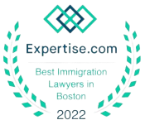H Visas
The following categories of H Visas are available:
H-1B Specialty Occupations
As companies strive to maintain their competitive edge in an ever-competitive world, they look to recruit the best talent to give them the edge, They recruit from both domestically and internationally. The H-1B visa allows businesses with a US presence to recruit foreign nationals to work in the United States in a variety of professions which include Information Technology, Medical and Scientific Research, Banking and Finance, Education, and Manufacturing. In order for a job to qualify as a Specialty Occupation, its minimum requirement should be a Bachelors’s or higher degree. The H-1B applicant must meet one of the following criteria:
- must have a US Bachelor’s or higher degree from an accredited institution of Higher Education
- must have a foreign degree equivalent to a US Bachelor’s or higher degree
- must have an unrestricted state license, registration, or certification which allows them to practice the specialty occupation and be engaged in that specialty in the state of intended employment.
- must have education, training, or progressively responsible experience in the specialty occupation that is equivalent to the completion of such a degree, and have recognition of expertise in the specialty through greater responsibilities in the positions directly related to the specialty occupation.
H-1B1 Specialty Occupations
The H-1B1 program allows employers to temporarily employ foreign workers from Chile and Singapore in the U.S. on a nonimmigrant basis in specialty occupations. Current laws limit the annual number of qualifying foreign workers who may be issued an H-1B1 visa to 6,800 with 1,400 from Chile and 5,400 from Singapore.
H-1B2 DOD Researcher and Development Project Worker
The requirement for this position is the same as for H-1B1 visas but the beneficiary does not have to file a Labor Condition Application.
H-1B3 Fashion Model
In order to qualify for the H-1B3 visa, the position must require a fashion model of prominence. To be eligible for this visa category you must be a fashion model of distinguished merit and ability.
Period of Stay
The non-immigrant H-1B visa allows the beneficiary to stay and working the United States for up to three years. This can be extended for another three years for a total stay of 6 years. There are exceptions to this and we advise that you speak to an immigration lawyer for further details.
Family of H-1B Visa Holder
The spouse and unmarried children (under 21 years) may apply for an H-4 visa. As of May 26, 2015, certain H-4 dependent spouses of H-1B nonimmigrants can apply for Employment Authorization, as long as the H-1B holder has started the process of seeking employment-based lawful permanent resident status.
H-1B Process
Once you have met with one of our immigration Lawyers and we have determined that your academic as well as work background qualifies for the H-1B visa, we will start the process by filing a Labor Condition Application. Once the Labor Condition Application has been approved, we will proceed to file the H-1B petition on your behalf.
H-1B Cap
Currently, there is a limit of 65000 H-1B1 non-immigrant visas which are issued every year (commencing October 1 until September 30th the following year). There are also an additional 20,000 visas available to foreign nationals with a master’s degree from a US institution of higher education. Since the United States Citizenship and Immigration Services (USCIS) normally receives more applications than there are H-1B visas available, they have instituted a lottery system. Each March, USCIS begins accepting Registrations for the H-1B CAP from candidates. As they have received far more application than the slots available in recent years, they randomly selects candidates from the registrations received. Only the selected candidates can proceed to submit their H-1B petition.
H-1B workers who are employed or petitioned by a higher education institution or its affiliated or related non-profit entities or a non-profit research organization, or a government research organization are not subject to this numerical cap.
H-1B Filing Fees
The current USCIS filing fees for the H-1B visa are:
- H-1B Application fee: $460
- Fraud Prevention & Detection fee: $500
- AWIA Fee*: $1500 (more than 25 employees) or $750 (25 or fewer employees)
*American Competitiveness and Workforce Improvement Act (ACWIA)
Premium Processing Service
For an optional fee of $2,500, a business can request that an application filed on their behalf be processed and the petitioner notified within 15 calendar days. The USCIS will issue an approval, a request for more information, or a notice to deny or to investigate within 15 days. If the USCIS is unable to respond within 15 calendar days, it will refund the premium processing fee and continue to process the application under the premium processing service. The Premium Processing Service is only available for employment–based petitions such as H-1B.
H-2A Agricultural Workers
The H-2A program allows U.S. employers to bring foreign nationals from certain countries to the United States to fill temporary agricultural jobs. The employer must file H-2A petition for Nonimmigrant Worker on the worker’s behalf. The job offered should be temporary of seasonal and show that there are not enough US qualified workers to do the work and that the position offered will not affect the wages of US worker employed in a similar job.
Period of Stay
The worker can stay in the United States for the period stated on the temporary labor certification. This visa can be renewed for one year each time for a total period of 3 years.
Families of H-2A Workers
An H-2A worker’s spouse and unmarried children under 21 years of age may apply for a H-4 nonimmigrant visa. The workers family is not eligible for employment in the United States while in H-4 status.
H-2B Non-Agricultural Workers
The H-2B visa allows employers to bring foreign nationals from certain countries to the United States to fill nonagricultural temporary job openings. The US employer must file on the prospective worker’s behalf. The employer must file H-2B petition for Nonimmigrant Worker on the worker’s behalf. The job offered should be temporary and show that there are not enough US qualified workers to do the work and that the position offered will not affect the wages of US worker employed in a similar job.
Period of Stay
The worker can stay in the United States for the period stated on the temporary labor certification. This visa can be renewed for one year each time for a total period of 3 years.
Families of H-2B Workers
An H-2B worker’s spouse and unmarried children under 21 years of age may apply for a H-4 nonimmigrant visa. The workers family is not eligible for employment in the United States while in H-4 status.
H-2B CAP
The United States Congress has set a limit of 66, 000 H-2B visas per fiscal year (October 1st- March 31st) with 33, 000 H-2B set aside for workers who begin work in the first half of the fiscal year and 33, 000 for those to start in the second half of the fiscal year. Any H-2B visas not allocated in the first half of the year are available for the second half.
H-3 Nonimmigrant Trainee/Special Education Exchange Visitor
The H-3 nonimmigrant visa allows foreign nationals to temporarily visit the United States to receive (a) training in any field of endeavor (other than graduate medical training) that is not available in the foreign nationals’ home country or (b) participate in a special education exchange visitor training program that provides practical training and experience in the education of children with physical, mental, or emotional disabilities.
Some of the fields for which the H-3 visa is available are agriculture, commerce, communications, government, and finance. The H-3 visa is not available for employment in the United States, it is intended to provide foreign nationals with training that they can use in their work in their home country.
Period of Stay
The trainee may be allowed to remain in the United States for up to 2 years. If the trainee petition is approved for a participant in the special education exchange program they may remain in the United States for up to 18 months.
Family of H-3 Visa Holders
Trainees’ spouses and children who are under the age of 21 may accompany the H-3 Visa holder to the United States as H-4 nonimmigrants. H-4 nonimmigrants are not permitted to work in the United States.
Frequently Asked Questions about the H-1B Visa
Why are there differences in the time taken to process H-1B1 visa applications?
The time taken to process an H-1B1 application (even if the visas were filed at the same time) differs depending on the USCIS center processing the application as well as the workload of the USCIS officer handling the application. There is nothing that our law offices can do to influence this process.
How long can I stay in the US on an H-1B status?
Generally, a person can work in the United States on an H-1B1 status for up to six years – the initial approval is given for three years which can be subsequently extended by another 3 years with an extension of stay being filed. If the applicant wishes to stay in the United States beyond the 6 years then a labor certification must be filed for the applicant 365 days prior to the time limit of 6 years expiring and if there is an approved I-140 visa petition on behalf of the applicant and there is no immigrant visa number availability for the applicant to apply for legal permanent residency.
Can I start my own business as a beneficiary of an H-1B1 or H4 with EAD?
The answer to this question is not straightforward. The following outlines some of the issues that the H-1B1 holder must take into account:
- The beneficiary cannot be the sole proprietor of the business entity. The business entity must have a governing authority (CEO, Board of Directors) other than the beneficiary that has complete decision-making authority regarding the pay, hiring, and firing of the beneficiary – the beneficiary must be treated no different to any other employee of the business entity.
- The position within the new business entity cannot be created for the sole purpose of obtaining an H-1B1 visa for the beneficiary.
- The position that the beneficiary plans to occupy within the business entity must adhere to all the requirements stated under the conditions of obtaining the H-1B1 Specialty Occupations visa.
- The business entity may sponsor an investor for the H-1B1 visa but getting approval for such cases is complicated and we advise the reader to seek legal advice.
- A person holding an H4 EAD status can start a business in the United States, however, they must be aware that should their circumstances change, for example, if their spouse becomes out of status and has to leave the country, they may lose everything they have invested in the business. Also, they must realize that their spouse may not work in the business as that would violate the terms of their H-1B1 status.
As mentioned previously, these are only just some of the issues surrounding the question of starting a business as an H-1B1 visa holder. Since every individual situation has particular factors associated with it and to avoid violating the conditions of your existing H-1B1 visa, we advise that you seek legal advice to discuss the full range of questions before starting any such business endeavors.

















